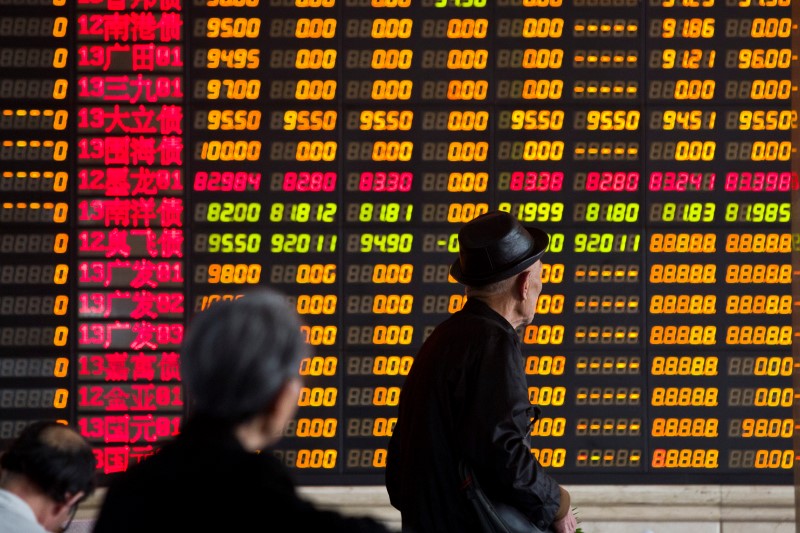By Gina Lee
Investing.com – Asia-Pacific stocks were mostly up on Wednesday morning. However, investors continue to assess the impact of a large selloff in technology shares and growing worries of a U.S. recession caused by tightening monetary policies.
Japan’s Nikkei 225 inched down 0.01% by 11:13 PM ET (3:13 AM GMT), while South Korea’s KOSPI gained 0.73%.
In Australia, the ASX 200 rose 0.63%
Hong Kong’s Hang Seng Index gained 0.39%
China’s Shanghai Composite was up 0.53% while the Shenzhen Component fell 0.51%. Despite Beijing's ongoing promises of stimulus, the country’s zero-COVID policy and lockdowns have done considerable economic damage.
JPMorgan cut its forecast for China’s second-quarter gross domestic product to a fall of 5.4% from a prior forecast of a 1.5% decline, after disappointing data in April.
To support the economy, China’s central bank and banking regulators encouraged lenders to boost loans. Also, China will offer more than 140 billion yuan ($21 billion) in additional tax relief to help offset damage in businesses caused by lockdowns.
Nasdaq 100 fell 2.20%. Shares in advertising-dependent Snap Inc (NYSE:SNAP). tumbled 43% to trade below its 2017 IPO price of $17 after the company warned of a worsening economic outlook. The selloff added to declines for peers including Meta Platforms (NASDAQ:FB), Alphabet (NASDAQ:GOOGL), and Twitter (NYSE:TWTR).
U.S. new home sales fell more than expected in April. It fell 16.6% month-on-month to 591,000. The Richmond Federal Reserve’s assessment of business activity fell to a two-year low.
Investors are shifting their focus to the outlook for monetary policy as worries of a potential recession caused by the tightening monetary policies. They now await the minutes from the last U.S. Federal Reserve meeting, due later today, for more clues on whether the tightening would continue.
“The market is moving its focus, and has been for the last month or so, from inflation concerns to growth concerns,” FL Putnam chief market strategist Ellen Hazen told Bloomberg.
Fed Bank of Atlanta President Raphael Bostic, one of the central bank’s dovish policymakers, urged the Fed to tighten policy with care and avoid ‘recklessness” in an essay he wrote and published by his bank on Tuesday.
In Asia-Pacific, the Reserve Bank of New Zealand raised the interest rate from 1.5% to 2.0% as Investing.com expected. The Bank of Korea will release its interest rate decision on Thursday.
On the data front, U.S. GDP and initial jobless claims will release on Thursday.
